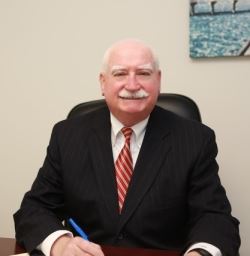It is the oldest theme in human history. It starts with a family. Add in property – land or stock or jewelry or collectibles. Over time, the patriarch (or matriarch) wishes to change the provisions of an earlier Last Will and Testament to reflect changes in his life and family; there may be second (or third) spouses who bring children from prior relationships into a new marital home; new children born of later marriages; or grandchildren. There may be expectations on the part of family members borne of earlier promises (“But you promised me that I would inherit the business!”) and earlier accommodations (“But you paid for his graduate school and you didn’t pay for mine!”).
The existence of such conflicts can have a huge impact on the decision-making of a testator (which is the technical term for the person executing a will), whether he is executing his first will or, as is more common, is revising a prior will. Especially where such a testator is aged or suffers from various illnesses, it is important to consider the possibility that his will may be challenged by an unhappy claimant on the allegation that the testator lacked "capacity".
The notion of “capacity” is at the heart of the dispositive act. California’s Probate Code states that a testator must be of “sound mind.” According to § 6100.5 of the state’s probate law, the testator must “understand the nature of the testamentary act, (B) understand and recollect the nature and situation of the individual's property, or (C) remember and understand the individual's relations to living descendants, spouse, and parents, and those whose interests are affected by the will.”
If a testator anticipates any possibility that disappointed claimants will charge, after his death, that he “lacked capacity” or was “incompetent”, the testimony of impartial witnesses to the execution of the will may be insufficient to establish that the testator possessed “testamentary capacity.” First, the proponent of the will (typically an executor or attorney) has to locate them. Second, given our highly mobile society, there is no guarantee that the witnesses can be located, that they actually remember the circumstances surrounding the execution of the will, or that the testimony is going to be consistent with the testator's intentions.
That being so, serious consideration should be given to videotaping the testator’s execution of the will. After all, a video that shows the testator in the testamentary act of signing the will in very difficult to dispute. Rather than having angry claimants telling a judge about their individual perceptions (colored, of course, by self-interest) of the testator’s mental capacity at the time of the execution, the judge has the opportunity to observe the testator at the precise moment of execution.
Even so, the decision to videotape should be carefully considered because the videotape will show everything. If the presence of the camera makes the testator nervous or anxious, the image of an anxiety-stricken testator may actually support a challenger's claim that the testator lacked capacity because the testator may look more infirm or vulnerable than he actually is. And the testator who is likely to go “off script” and make offhanded statements may do himself more harm than good.
Few acts are more fundamental to human existence than the power to decide on the proper disposition of your worldly goods upon your death. Contact the Law Offices of James C. Shields to arrange for a consultation guiding you through that decision-making process.


